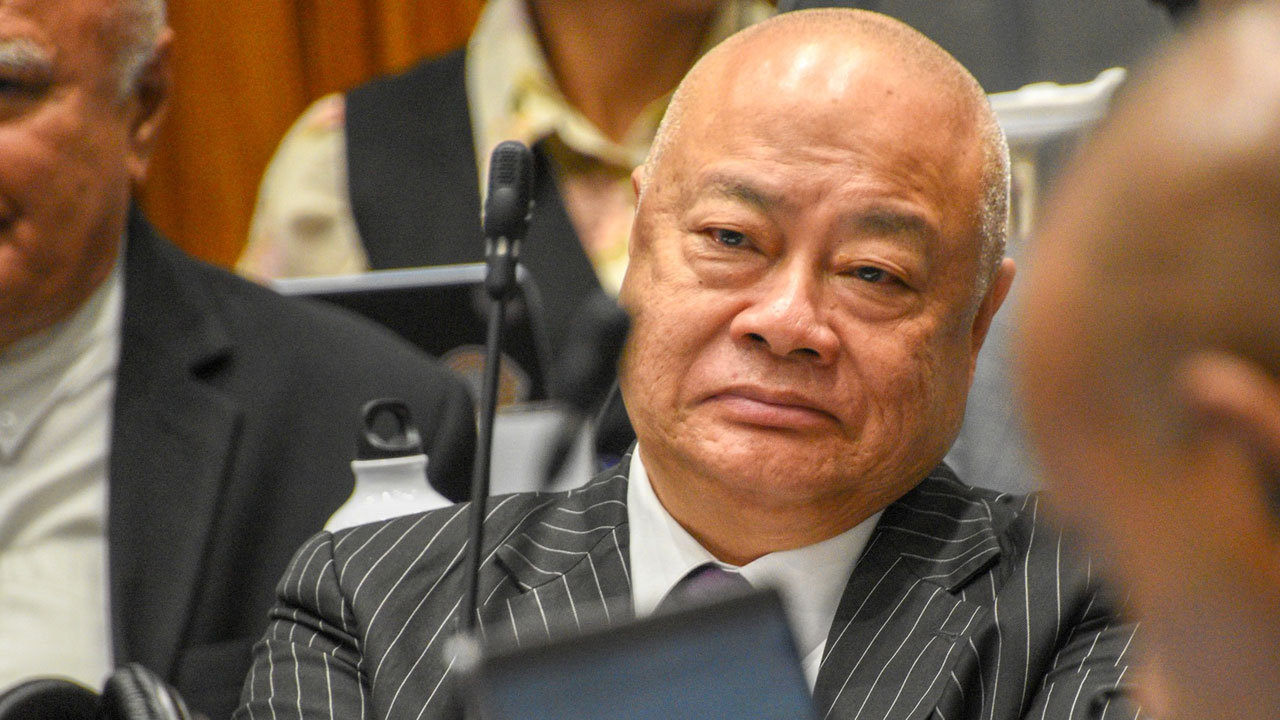Numerous references to Fiji Attorney-General in the 2013 Constitution are aspects which need to be reviewed.
Attorney-General Graham Leung said the person in that position was given too much power, which was dangerous and could lead to abuse in the wrong hands.
Speaking on the need to review the Constitution, Leung said Professor Anthony Regan of the Australian National University (ANU) was invited to start a serious dialogue on the way forward if there was consensus that the document needed to be changed.
“I think it’s an open secret that the major political parties’ manifestos in the 2022 elections expressed dissatisfaction of some sort with the 2013 Constitution,” Leung said.
“More recently the Supreme Court observed that it was the result of a handful of people who drafted it. It was not the result of a democratic process reflecting the will of the people.
“Everyone is aware of what it says about how that change can be done. Obviously, it was written in such a way to make it very difficult.”
Leung said last week’s public lecture was a good place to start a conversation about constitutional reform.
He said several questions needed to be asked, including what needed to change and what was worth retaining.
The Attorney-General said the Bill of Rights claimed to give people all manner of rights but went on to say the same rights must be limited.
“In our previous Constitution of 1997, rights could only be limited if they were reasonable and justified as would be consistent with the freedoms in a democratic country.
“The open list system of proportional representation in the electoral system, where a candidate for election must receive 5 percent of the total votes cast to be elected, is another issue with the Constitution – it is unfair and undemocratic.
“A candidate receiving a couple of hundred votes can be elected to Parliament, and yet someone who polls thousands, is excluded.”
Leung said there have been many calls for change, but he believed this was the first positive step being taken to frame the discussions in a constructive and thoughtful manner.
He said this change required a thoughtful process moving forward.
“I don’t think we can give a knee-jerk reaction to a very complex issue, and I think that came out quite strongly in the lecture that we need to give consideration to the process as well as the content.”
Meanwhile, a constitutional law expert has suggested it is not an option to keep Fiji’s Constitution “as it is”.
Australian National University’s (ANU) Professor Anthony Regan said the current government had only come into power “by the skin of its teeth”.
He asked the participants whether they thought it was fine to leave the Constitution as it was because the new regime was “fair and thoughtful”.
“That may be true, but every Government is subject to temptations when there are pressures,” he said.
“There’s no guarantee that a good outcome will come in every future election.”
He also said the chaos that had come out of the Parliamentary remuneration problems left the Government unexpectedly with a far greater majority, which meant it was a bit more possible to get the three-quarters majority needed in Parliament.
Prof Regan suggested it was not an option to leave the 2013 Constitution “as it is”.
“Do you leave it as it is now and say it’s too difficult to change? That’s an option,” he said.
“And you might say that’s OK because the new regime is a fair and thoughtful regime and will act only fairly.
“That may be true, but every government is subject to temptations when there are pressures.”
He said this Government got in by the skin of its teeth despite a pretty bad electoral system designed to keep other people in power.
“There’s no guarantee that a good outcome will come in every future election and then, if a government that had far less good intent came to power, it’s got the authority to do all the things we have talked about.”
He said these included overriding human rights and stacking accountability institutions etcetera.














